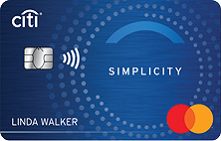Filter Options
×-
-
Unselect all
-
Unselect all
-
Unselect all

Showing 34 Cards
Sort By Column Name:
Citi Custom Cash℠ Card
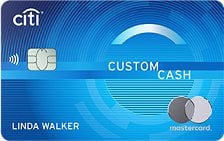
Citi Custom Cash℠ Card
- 18.99% - 28.99% (Variable) Regular Purchase APR
- 18.99% - 28.99% (Variable) Balance Transfer APR
- 29.99% (Variable) Cash Advance APR
- 0% for 15 months on Purchases Intro Purchase APR
At a Glance
The Citi Custom Cash? Card is a generous cash back credit card that offers up to 5% back on eligible purchases. The card, from Citi, does not charge an annual fee and rewards 5% back on the top spending category each month, with options including transit, travel, gas, groceries, dining, and more.
- Best Benefits
- Rates & Fees
- Why Should You Apply?
- Earn $200 cash back after you spend $1,500 on purchases in the first 6 months of account opening. This bonus offer will be fulfilled as 20,000 ThankYou® Points, which can be redeemed for $200 cash back.
- 0% Intro APR on balance transfers and purchases for 15 months. After that, the variable APR will be 18.99% - 28.99%, based on your creditworthiness.
- Earn 5% cash back on purchases in your top eligible spend category each billing cycle, up to the first $500 spent, 1% cash back thereafter. Also, earn unlimited 1% cash back on all other purchases.
- No rotating bonus categories to sign up for - as your spending changes each billing cycle, your earn adjusts automatically when you spend in any of the eligible categories.
- No Annual Fee
- Citi will only issue one Citi Custom Cash℠ Card account per person.
- Intro Purchase APR: 0% for 15 months on Purchases
- Regular Purchase APR: 18.99% - 28.99% (Variable)
- Intro Balance Transfer APR: 0% for 15 months on Balance Transfers
- Balance Transfer APR: 18.99% - 28.99% (Variable)
- Balance Transfer Transaction Fee: 5% of each balance transfer; $5 minimum.
- Cash Advance APR: 29.99% (Variable)
- Cash Advance Transaction Fee: 5% of each cash advance; $10 minimum
- Penalty APR: Up to 29.99% (Variable)
- Annual Fee: $0
- Foreign Transaction Fee: 3%
- Late Payment Penalty Fee: Up to $41
- Return Payment Penalty Fee: Up to $41
- You want to earn 5% back but do't want quarterly categories
- You plan on spending $1,500 within the first 90 days
- You have a large purchase in mind that you want to pay down over time
- You plan on transferring an existing balance within the first four months
- You don’t want to pay an annual fee
Citi® Double Cash Card – 18 month BT offer
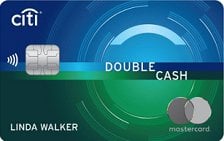
Citi® Double Cash Card – 18 month BT offer
- 18.99% - 28.99% (Variable) Regular Purchase APR
- 18.99% - 28.99% (Variable) Balance Transfer APR
- 29.99% (Variable) Cash Advance APR
At a Glance
The Citi® Double Cash Card is one of the most versatile cash back credit cards on the market today, thanks to impressive, flat-rate cash back, lucrative introductory 0% APR offers, and more. Cardholders earn 2% back on every eligible purchase: 1% back at the time of sale and an additional 1% back when they pay their statement balance. Cash back is redeemable for statement credits, direct deposits, checks, or converted as ThankYou® points.
- Best Benefits
- Rates & Fees
- Why Should You Apply?
- Earn 2% on every purchase with unlimited 1% cash back when you buy, plus an additional 1% as you pay for those purchases.
- To earn cash back, pay at least the minimum due on time.
- Balance Transfer Only Offer: 0% intro APR on Balance Transfers for 18 months. After that, the variable APR will be 18.99% - 28.99%, based on your creditworthiness.
- Balance Transfers do not earn cash back. Intro APR does not apply to purchases.
- If you transfer a balance, interest will be charged on your purchases unless you pay your entire balance (including balance transfers) by the due date each month.
- There is an intro balance transfer fee of 3% of each transfer (minimum $5) completed within the first 4 months of account opening. After that, your fee will be 5% of each transfer (minimum $5).
- Regular Purchase APR: 18.99% - 28.99% (Variable)
- Intro Balance Transfer APR: 0% for 18 months on Balance Transfers
- Balance Transfer APR: 18.99% - 28.99% (Variable)
- Balance Transfer Transaction Fee: 3% of each transfer (minimum $5) completed within the first 4 months of account opening. A balance transfer fee of 5% of each transfer ($5 minimum) applies if completed after 4 months of account opening.
- Cash Advance APR: 29.99% (Variable)
- Cash Advance Transaction Fee: 5% of each cash advance; $10 minimum
- Penalty APR: Up to 29.99% (Variable)
- Annual Fee: $0
- Foreign Transaction Fee: 3%
- Late Payment Penalty Fee: Up to $41
- Return Payment Penalty Fee: Up to $41
- You prefer earning cash back at a flat rate rather than in rotating categories
- You're looking to either consolidate existing balances or pay down a large purchase with no interest charges for an extended period of time
- You like to have the flexibility of converting cash back into lucrative rewards points
- You're considering a credit card without an annual fee
Citi® Diamond Preferred® Card
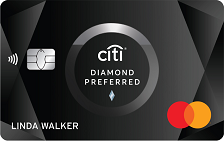
Citi® Diamond Preferred® Card
- 17.99% - 28.74% (Variable) Regular Purchase APR
- 17.99% - 28.74% (Variable) Balance Transfer APR
- 29.99% (Variable) Cash Advance APR
- 0% for 12 months on Purchases Intro Purchase APR
At a Glance
The Citi® Diamond Preferred® Card provides one of the longest 0% intro APR periods on the market for no annual fee.
- Best Benefits
- Rates & Fees
- Why Should You Apply?
- 0% Intro APR for 21 months on balance transfers from date of first transfer and 0% Intro APR for 12 months on purchases from date of account opening. After that the variable APR will be 17.99% - 28.74%, based on your creditworthiness. Balance transfers must be completed within 4 months of account opening.
- There is a balance transfer fee of either $5 or 5% of the amount of each transfer, whichever is greater
- Get free access to your FICO® Score online.
- With Citi Entertainment®, get special access to purchase tickets to thousands of events, including concerts, sporting events, dining experiences and more.
- Intro Purchase APR: 0% for 12 months on Purchases
- Regular Purchase APR: 17.99% - 28.74% (Variable)
- Intro Balance Transfer APR: 0% for 21 months on Balance Transfers
- Balance Transfer APR: 17.99% - 28.74% (Variable)
- Balance Transfer Transaction Fee: 5% of each balance transfer; $5 minimum.
- Cash Advance APR: 29.99% (Variable)
- Cash Advance Transaction Fee: 5% of each cash advance; $10 minimum
- Penalty APR: Up to 29.99% (Variable)
- Annual Fee: $0
- Foreign Transaction Fee: 3%
- Late Payment Penalty Fee: Up to $41
- Return Payment Penalty Fee: Up to $41
- You make frequent purchases to entertainment events and want priority access
- You're looking for a generous introductory 0% APR period for both purchases and balance transfers
Citi® Secured Mastercard®
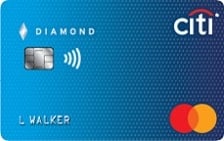
Citi® Secured Mastercard®
- 27.24% (Variable) Regular Purchase APR
- 27.24% (Variable) Balance Transfer APR
- 29.99% (Variable) Cash Advance APR
At a Glance
The Citi® Secured Mastercard® is a basic secured credit card that provides all the benefits of a Mastercard credit card but with the credit building security of a cash deposit. The card features no annual fee or maintenance fees.
- Best Benefits
- Rates & Fees
- Why Should You Apply?
- The Citi® Secured Mastercard® is a no annual fee credit card that helps you build your credit when used responsibly
- Unlike a debit card, it helps build your credit history with monthly reporting to all 3 major credit bureaus. Once available, you will also have free access to your FICO score online
- Use your card anywhere Mastercard® is accepted - worldwide
- A security deposit is required. Once approved, your credit limit will be equal to your security deposit (minimum of $200)
- Get help staying on track with Auto Pay and account alerts
- With Flexible Payment Due Dates, you can choose any available due date in the beginning, middle or end of the month
- Manage your account 24/7 online, by phone, or in our mobile app
- Regular Purchase APR: 27.24% (Variable)
- Balance Transfer APR: 27.24% (Variable)
- Balance Transfer Transaction Fee: Either $5 or 3% of the amount of each transfer, whichever is greater
- Cash Advance APR: 29.99% (Variable)
- Cash Advance Transaction Fee: Either $10 or 5% of the amount of each cash advance, whichever is greater
- Penalty APR: Up to 29.99% variable based on your creditworthiness and the Prime Rate
- Foreign Transaction Fee: 3% of the transaction amount in U.S. dollars
- Late Payment Penalty Fee: Up to $41
- Return Payment Penalty Fee: Up to $41
- Minimum Deposit Required: $200
- You have no credit history and want to start building up your credit score
- You want free fraud monitoring and the ability to track your expenses online 24/7
- You do not want to pay an annual fee
- You want a card that reports to the major credit bureaus
AllModern Mastercard®
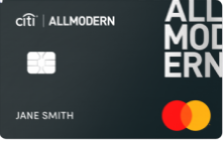
AllModern Mastercard®
- 31.99% variable based on the Prime Rate Regular Purchase APR
- 31.99% variable based on the Prime Rate Balance Transfer APR
- 29.99% variable based on the Prime Rate Cash Advance APR
At a Glance
The AllModern Mastercard® provides the ideal tool for making design improvements, thanks to up to 5% back on purchases with all five Wayfair family websites, special 0% APR financing on eligible purchases, and more – all for no annual fee.
- Best Benefits
- Rates & Fees
- Why Should You Apply?
- 5% back in Rewards at Wayfair brands, including AllModern
- 3% back at grocery stores
- 2% back on online purchase outside of Wayfair brands
- 1% back on all other purchases
- No interest financing if paid in full up to 24 months on qualifying orders
- No annual fee
- Regular Purchase APR: 31.99% variable based on the Prime Rate
- Balance Transfer APR: 31.99% variable based on the Prime Rate
- Balance Transfer Transaction Fee: Either $10 or 5% of the amount of each transfer, whichever is greater
- Cash Advance APR: 29.99% variable based on the Prime Rate
- Cash Advance Transaction Fee: Either $10 or 5% of the amount of each advance, whichever is greater
- Foreign Transaction Fee: 3% of the U.S. Dollar amount of each purchase
- You frequently shop at AllModern or other Wayfair brands
- You want access to special financing for larger purchases
- You want to earn 5% back on Wayfair purchases and 2% back online
- You do't want to pay an annual fee
You've viewed 5 of 34 credit cards
This post may contain links from partner offers, and we may receive compensation when you click on links to these offers. Please see our advertiser and editorial disclosures above for more information. Citi is an advertising partner.
The information related to the Citi Rewards+® Card, Citi Premier® Card, Citi® Secured Mastercard®, American Airlines AAdvantage® MileUp℠ Card, Citi® AAdvantage® Platinum Select® World Elite™ Mastercard®, CitiBusiness® / AAdvantage® Platinum Select® Mastercard®, Citi® / AAdvantage® Executive World Elite Mastercard®, Costco Anywhere Visa® Card by Citi, Costco Anywhere Visa® Business Card by Citi, Birch Lane Mastercard, AllModern Mastercard®, Wayfair Mastercard®, Joss & Main Mastercard®, Meijer Mastercard®, Shell Fuel Rewards Mastercard, Shop Your Way Mastercard®, Brooks Brothers Platinum Mastercard, L.L.Bean® Mastercard®, Macy’s American Express® Card, Bloomingdale’s American Express® Card at the Top of the List, Bloomingdale’s American Express® Card, My Best Buy Visa Card, AT&T Access Card from Citi, ExxonMobil™ Smart Card, Expedia® Rewards Voyager Card from Citi, Expedia® Rewards Card, Citi Rewards+ Student Card, and Citi Prestige® Card has been collected by BestCards.com and has not been reviewed or provided by the issuer or provider of this product or service.
About Citibank Credit Cards
Citibank is the largest credit card issuer in the United States. Citi currently has over 95 million credit cardholders, with credit cards for almost every budget and use. The Citi credit card suite includes cash back credit cards, travel credit cards, and co-branded credit cards from airlines, hotels, and leading brands. Citi business credit cards also offer exceptional value and are extremely popular.
Common Benefits of Citi Credit Cards
Citibank offers a variety of benefits unique to their credit cards:
| $0 Fraud Liability | Virtual Account #s | FICO Score Access |
| Citi Quick Lock | Citi ID Theft Protection | Fraud Alerts |
What Should You Look for In a Citi Credit Card
As with other credit cards, before applying for a Citi Card, be sure to consider the following:
| ① Annual fee | Does the credit card charge a yearly fee? Rewards cards – especially travel rewards cards – sometimes come with hefty annual fees. Always be sure you’ll get enough value from the travel perks, credits, and benefits to justify that yearly cost. |
| ② APR | Always check the interest rates before applying. The better your credit score, the better the rate you can expect. Does the card offer a 0% intro APR period? Cards that provide an interest-free introductory period are ideal for those who plan to make an expensive purchase or have a balance they wish to pay down. |
| ③ Rewards | If you are considering a rewards card, what type of awards does it offer? Pay close attention to how you’ll earn reward points. This is especially important with Citi Cards that earn ThankYou points. ThankYou points feature two tiers, so carefully consult our guide before selecting your Citi rewards card. |
Guide to Applying for Citi Credit Cards
Here are some important details on what you need to know about Citi card applications before you start the application process:
What Credit Score Do You Need to Apply?
Most Citi credit cards are aimed at applicants with good or excellent credit scores. Because of this, Citi credit cards are popular for their generous welcome bonuses and everyday rewards. Despite this, Citi does offer a subprime credit card – the Citi® Secured Mastercard®.
How Many Citi Cards Can You Have?
Citi has no limit on the total number of credit cards you can use. Instead, the bank limits the overall credit across all your Citi cards. If you apply for a new Citi card and you’ve already met the credit limit Citi has assigned you, you will likely need to agree to shift the existing limits on your open accounts to accommodate the new card.
Does Citi Offer Pre-Qualification Before Applying?
Citibank provides a streamlined pre-qualification process for some of its proprietary credit cards, namely, the following four cards:
To start the Citi “pre-approval” process, visit the Citi website. Hover over the “Credit Cards” tab on the top of the credit card landing page and select “See if You Are Pre-Selected.”
The following information is required to complete the pre-qualification and prescreening process:
- Full name
- Email address
- Current mailing address
- The last four digits of your Social Security Number (SSN)
Related Article: How to Pre-Qualify for a Credit Card
Information Needed to Apply for a Citi Credit Card
Applying for a Citi credit card is straightforward. The bank doesn’t have any unique requirements for personal information, instead asking for the usual info:
| Info | Explained |
|---|---|
| ① Full legal name and contact information | You’ll need your full legal name, contact address, phone number, and e-mail address to apply for pretty much every credit card. |
| ② Social Security Number (SSN) or Individual Taxpayer Identification Number (ITIN) |
Most credit card issuers require applicants to have a U.S. Social Security number to apply for a credit card. Since foreign citizens likely lack an SNN, they may receive an Individual Taxpayer Identification Number (ITIN) instead. An ITIN is an ID number the IRS issues to anyone who needs to file income tax returns in the United States but doesn’t qualify for an SSN. Be ready to provide either of these items when applying for a personal credit card. The following banks accept foreign national applicants with an ITIN number, according to Experian:
Currently, only two major card issuers don’t allow applicants with an ITIN:
|
| ③ Income | You’ll need to provide income information when applying for a credit card. Banks like to see that you aren’t too stretched financially, and part of this process is by evaluating how much income you have from things like your job, investments, and other sources. |
| ④ Expenses | Your monthly expenses are the second part of the puzzle when it comes to gauging your risk as an applicant. Your monthly housing costs (rent, mortgage) current utilities, and other relevant info might be asked when you apply. |
| ⑤ Credit Score | The final piece of informational lender needs to judge a credit card application is your credit score. Much of the information in your credit report is supplied by creditors and lenders, and potential lenders will use these details as a point of reference when considering you for a loan or line of credit. Your credit report is prepared and sold to prospective lenders and creditors by three credit reporting agencies – or bureaus, as they’re also known. They are Equifax, Experian, and TransUnion. |
Citi Credit Card Application Rules
Like most banks, Citi has specific rules for its credit cards and the application process. Despite this, most applicants have nothing to worry about, as these rules only apply to frequent credit seekers.
Citi 8/65 Rule on Applications
Citi also limits how often you can seek new credit before applying for a Citi credit card. This rule is known as the 8/65 rule (sometimes called the Citi 1/8/65 rule) and limits applicants to one credit card application every eight days and no more than two applications within 65 days. If you violate this rule, your Citi application may be automatically denied, even though it is not a publicly disclosed requirement.
Citi 48-Month Rule for Welcome Bonuses
Another time-sensitive restriction on new Citi credit applications is the 48-month rule. Unlike the 8/65 rule, the 48-month rule applies to welcome offers—namely, the number of you can receive for the same card.
Citi’s 48-month rule specifies that applicants can only get the welcome bonus for a specific Citi card once every 48 months. Suppose you get a Citi Custom Cash℠ Card but later cancel it. In that case, you won’t qualify for another welcome offer for subsequent Custom Cash applications for at least four years (48 months).
24-Month Rule for Family Welcome Bonuses
There is also a restriction on earning welcome bonuses for cards in the same family. A “family” of credit cards is a grouping of cards that operate within the same loyalty program – such as Citi ThankYou Rewards or American Airlines AAdvantage. For example, if you applied for the same Custom Cash Card previously mentioned, you would not qualify for a welcome bonus for any card that earns ThankYou points. This example would apply to the following cards:
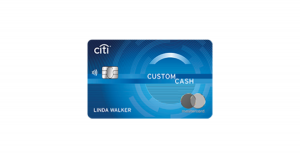 Citi Custom Cash℠ Card |
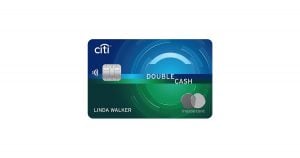 Citi® Double Cash Card |
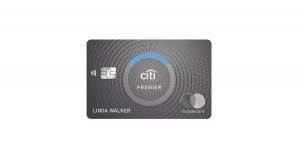 Citi Premier® Card |
 Citi Rewards+® Card |
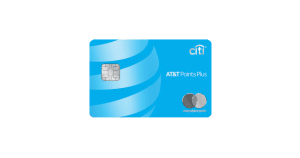 AT&T Points Plus Card from Citi |
Citi 1/90 Rule for Business Card Applications
Another Citi credit card application rule is the 1/90 rule, which only applies to business card applications. Citi will not approve more than one new business credit card application per 90 days (three months) for the same applicant.
Other Rules
There are some other, softer rules which only apply to certain applicants. This applies to two distinct subsets and may result in the automatic rejection of your application. These soft rules are:
6/6 Rule
The Citi 6/6 rule is that applicants can only have six hard inquiries in six months.
1/60 Rule
The Citi 1/60 rule is that applicants only have one Citi card application every 60 days (about two months). This rule can be bypassed with an existing relationship with Citi or a robust credit file.
Citi True Name
Mastercard’s True Name™ program allows all non-binary and transgender customers to put their chosen name, rather than their legal name, on their card. This is the first move by a major credit card issuer to allow customers to personally select the name they want to use on their credit card. Previously, cardholders have had no choice but to use their birth name, which can be a point of sensitivity for many people who identify as non-binary or transgender.
Initially launched in October 2020, the True Name program has helped eligible Mastercard customers show their true identity without requiring a legal name change. Since its launch, more than 31,000 US Citibank card members have updated their chosen first names. Now, Citi is expanding the True Name program to include Citi debit cards.
Existing Citi debit cardholders can now update their name by calling the number on the back of their Citi debit card or visiting their local Citi branch. Eligible Citi credit cardholders can change their current name to reflect their true identity by visiting citi.com/updatemyname. There, they can log in to their Citi credit card account, click “Profile,” select their contact information, and click “Use My Preferred First Name.”
It is important to note that Citi may still use your legal name in certain circumstances, including identity verification and specific communications.
The Ultimate Guide to Citi ThankYou Rewards
Citi ThankYou is the rewards program for Citibank credit cards. Users earn points when using their Citi credit cards to make a payment anywhere Citibank credit cards are accepted worldwide. ThankYou Rewards is unique in that it features two tiers – basic and deluxe. While these aren’t the terms used by the bank, they are appropriate given the value of each point with the two – and the redemption options available.
Which Citi Credit Cards Earn ThankYou Points?
Citi issues a wide variety of credit cards, including co-branded cards from leading airlines, hotels, and brands. Only certain credit cards earn ThankYou points, however. Here is a list of all Citi credit cards that earn ThankYou Rewards points:
| Card | Features |
|---|---|
| Citi Rewards+® Card |
|
| Citi Premier® Card |
|
| AT&T Points Plus Card from Citi |
|
*Citi Prestige Card is not available for new applicants but still earns ThankYou Points.
Cash Back Cards That Earn ThankYou Points
The Citi Custom Cash and the Citi Double Cash also earn ThankYou Rewards points, but as cash back. These points are redeemable for statement credits, cash back, gift cards, and other similar rewards, but not for travel or other award options – unless the accountholder has another Citi ThankYou Rewards credit card that earns full-fledged points.
| Card | Features |
|---|---|
| Citi Custom Cash℠ Card |
|
| Citi® Double Cash Card |
|
How to Earn ThankYou Rewards
Citibank Credit Cards with ThankYou rewards earn points on qualifying purchases. Like other issuers, this includes extra points on qualifying purchase categories. Other options for earning ThankYou points include referral bonuses, earning extra points through limited-time offers, or purchasing with select partners through the Citi ThankYou portal.
How to Combine ThankYou Points
As mentioned, not all ThankYou point credit cards earn the same rewards. Like the Double Cash and Citi Custom Cash, some cards earn ThankYou points that do not apply towards travel or other redemption options.
This restriction isn’t a fast and hard rule, however. Cardholders can combine all their Citi ThankYou points provided all the accounts are owned by the same person. You can also combine ThankYou Rewards points by calling Citi at 1-800-THANKYOU (1-800-842-6596) and speaking with a customer service representative.
Once points are combined, they apply to any Citi ThankYou Rewards credit card. Cardholders can then use points to travel, transfer to a Citi partner, or any other option.
Can You Share Points?
Citi ThankYou points fall into two categories. The first category, “basic” ThankYou points, has a value of one cent per point. Cards that offer points that feature one cent per point value include the Citi Rewards+ Card, Citi Rewards+ Student Card, and the AT&T Access Card from Citi. These points can’t be transferred to Citi travel partners. Instead, the basic points apply to statement credits, gift cards, and other awards.
All other Citibank ThankYou credit cards allow points transfers to Citi travel partners. Because of their transferability, these “deluxe” ThankYou points have a value of 1.7 cents per point. Additionally, ThankYou points expire three years from the end of the year in which they are earned.
What are Points Worth?
Just how valuable are Citi ThankYou Points? Here is how Citi stacks up versus the other major issuer loyalty programs:
| Program | Value (cents/point) |
|---|---|
| American Express Membership Rewards | 2 |
| Bank of America Premium Rewards | 1 |
| Brex | 1.8 |
| Bilt Rewards | 2 |
| Capital One Rewards | 1.75 |
| Citi ThankYou Rewards | 1.75 |
| Chase Ultimate Rewards | 2 |
| Discover Miles | 1 |
| U.S. Bank FlexPerks | 1.6 |
| Wells Fargo Go Far Rewards | 1.5 |
| CU Rewards | 1 |
How to Redeem Citi Rewards Points
ThankYou points apply towards the following redemption options:
| ① Cash back | Cash back applies to cash rewards as statement credits. |
| ② Gift cards | Citi rewards apply to gift cards from over 100 leading retailers and brands. |
| ③ Shopping | Cardholders can use ThankYou points to shop with Amazon, Best Buy, Expedia, PayPal, or 1-800-FLOWERS. |
| ④ Charity | Cardholders can also use their points to make donations to the American Red Cross or Smile Train. |
ThankYou Rewards points also apply to travel bookings through the ThankYou from Citi travel portal. Reservations through the portal apply to flights, hotels, cruises, and rental cars. Points also apply to select activities. The two premium Citi travel cards, the Citi Premier Card and the Citi Prestige Card offer the best value when booking travel (up to 1.7 cents per point).
Citi Transfer Partners
Citibank offers point transfers to 18 airline and hotel partners. Many of these point transfer partners are at a 1:1 ratio, making them a great value for those who are also a member of the frequent flyer program of an associate carrier. The following are Citi ThankYou transfer partners:
| Wyndham Rewards | Aeromexico | ALL – Accor Live Limitless | Flying Blue | JetBlue TrueBlue | Qantas Frequent Flyer |
| Avianca LifeMiles | Cathay Pacific | Choice Privileges | Qatar Privilege Club | Shop Your Way | Singapore Airlines |
| Emirates Skywards | Etihad Guest | EVA Air | Thai Royal Orchid Plus | Turkish Airlines Miles&Miles | Virgin Atlantic Flying Club |
Citi Entertainment®
Citi Entertainment® is an online portal full of entertainment possibilities. Anyone with a Citi® credit card or Citibank® Debit Card can use the portal to gain special access to entertainment. On the website, you will find thousands of event sales, including presale tickets and exclusive experiences for the year’s most anticipated concerts, sporting events, dining experiences, and more. To gain special access while on the Citi Entertainment® website, cardholders will be asked to use the first six digits of their Citi® credit card or Citibank® Debit Card as a passcode to search for tickets. Search the site for happening events or artist concerts in a city near you and filter out whatever dates work for you.
FAQs
Here are answers to some common questions about Citibank and its ThankYou Rewards program:
Citi Flex Loans allows eligible cardholders to “handle life’s expected and unexpected expenses.” The loan process features:
- Fixed-APR for the duration of the loan
- No application process, as the loan ties into an existing Citibank credit card account
- No hard inquiries and no loan origination fees
- Flexible payment timetables allow users to select their payment amount and terms
For more information on Citi Flex Loans and Citi Flex Pay, check out our Flex Pay guide.
Citibank’s routing number depends on where you open your Citi account. Below are the routing numbers for Citi accounts in different states:
- Northern California: 321171184
- Southern California: 322271724
- Connecticut: 221172610
- Delaware: 31100209
- Florida: 266086554
- Illinois: 271070801
- Maryland: 52002166
- Nevada: 322271724, 322271779, or 321070007
- New Jersey: 21272655
- New York: 21000089
- South Dakota: 21000089
- Texas: 113193532
- Virginia: 254070116
- Washington DC: 254070116
- Citi Merchant Offers are select deals and savings offered to select Citi credit cardmembers.
- Per Citi: Click on “Services,” then “Products & Offers.” Browse to the “Merchant Offers” section at the bottom of the page and select “See all” to see the offers on your eligible Citi cards.
Yes. All credit and debit cards must be activated before use. Activating a Citi card is simple, and can be done though the Citi mobile app or by calling the number on the back of the card
- Citi’s credit card statements are easy to read and compare to other statements by major banks. The statement can be downloaded and manually searched online, or cardmembers can scan the statement for vendor information.
When a credit card declines it usually means one of several things:
- you are over your credit card limit
- Your bank or payment network suspects fraud
- You are attempting to make a purchase that violates the card’s terms of service
If a transaction on your credit card is declined, call Citi Customer Service at 1-800-950-5114 (TTY: 1-800-325-2865 for hearing and speech impaired services only)
- Citi credit cards should be activated online and will not require a pin unless attempting a cash advance. This process can be set up after the card is received and used.
- You can apply for a Citibank credit card every eight days, with a cap of two applications every 65 days. These application rules for Citi credit cards are fairly standard with other banks and issuers.
- Citi provides credit cards for all credit profiles and scores. These cards include secured, retail, and rewards credit cards.
- You cannot combine Citi credit cards, but you can have more than one Citi credit card at a time.
- Citi’s credit card customer service phone number is 1-800-267-2425. Calling this number can help you change your statement due date, add or remove an authorized user, or close any Citi credit card account. You can also replace or lock a card.
- Citi credit cards take between 7 to 10 days to receive via the mail. There is no way to expedite a new Citi credit card
- No, you can no longer pay your Citi credit card in a branch. You can pay your Citi credit card bill by logging in to the Citi mobile app, or online through the desktop site.
- Yes. Banks don’t mind which bank the funds for payments come from, as long as they are your funds and the process is legal. You will need the routing number and account number for the other bank.
- You can see all of your card’s information on the Citi website or mobile app. Conversely, you can speak with a Citi customer service agent at 1 (800) 950-5114.
Yes. Citi ThankYou Rewards might not have the name appeal of Amex Membership Rewards or Chase Ultimate Rewards, but dedicated travelers can find significant value with the program.
- ThankYou Rewards will expire three years from the end of the year in which they are awarded
Per Citi:
- Transact using your Citi Credit Card.
- An SMS will be sent with a redemption link to your mobile number registered with Citi.
- Click on the link and select the number of points to redeem.
- Upon confirmation of successful redemption the credit against points redeemed will show in your next statement.
Yes. Points apply for hotel stays, airline tickets, rental cars, and more.
Editorial Disclosure – The opinions expressed on BestCards.com's reviews, articles, and all other content on or relating to the website are solely those of the content’s author(s). These opinions do not reflect those of any card issuer or financial institution, and editorial content on our site has not been reviewed or approved by these entities unless noted otherwise. Further, BestCards.com lists credit card offers that are frequently updated with information believed to be accurate to the best of our team's knowledge. However, please review the information provided directly by the credit card issuer or related financial institution for full details.

